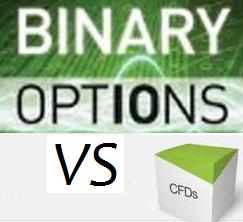A CFD, or contract for difference, is a contract between a buyer and seller where the buyer agrees to pay the difference between the contract from the time of purchase and the time of sale. A CFD is purchased with leverage and there are commissions and interest involved. If the price deviates too far out of the money there may be a margin call and you can be forced to sell at a significant loss. As stated earlier you don’t actually purchase any shares of stock you are just purchasing a contract representing the stock at a certain price.
CFD’s were created in the early 90’s as a way for hedge funds to hedge against security positions without incurring the tax liability that would be assessed by owning the actual shares. By 2000 retail traders realized the benefit of CFD’s was not only tax related but as a way to leverage any underlying asset. It was at this time that their popularity grew in the UK as well as many other countries. CFD’s have been compared to bucket shops which were popular in the US at the turn of the 20th century. Speculators would bet on the ticker price of a stock with the bucket shop. If the price went up they would profit. If the price went down the shop took the profit. No underlying security was purchased, it was a simple bet on the movement of the security. Bucket shops are now illegal in the US under criminal as well as securities law. So to, CFD’s are currently illegal in the US according to SEC rules. CFD’s are legal and regulated in many countries throughout the world including the UK, Canada, South Africa, Germany and Italy.
Binary Options are also a contract between a buyer and a seller where no underlying securities are purchased. In the case of a Binary Option you are simply betting against the broker as to whether the price of the stock will go up or down within a given time frame. Once the time expires you either win or lose. The amount by which the asset increases or decreases is irrelevant. It is a fixed odds bet, meaning that your risk and reward is predetermined before you make the trade. The broker profits on the difference between payout amounts, as trader receives less for a win than he loses in a loss. There are generally no commissions or fees charged in a Binary Options transaction. Binary Options are legal in the US and most countries around the world.
So, although both CFD’s and Binary Options trades are contracts between a buyer and a seller which does not involve the purchase of an underlying security, they are actually very different in terms of fee structure, risk, legality and structure.
Which contract would you choose?





